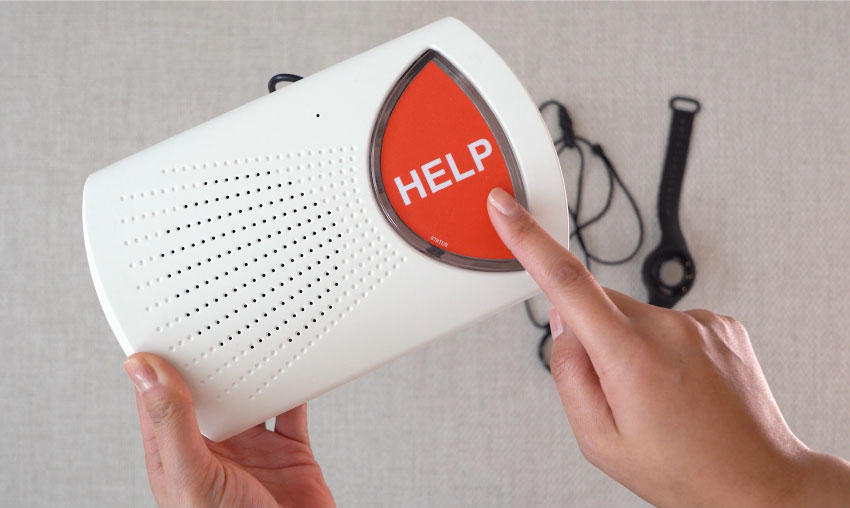Can A Medical Alert Help A Non-English Speaker?
March 22, 2023
YES! Communication during an emergency can be difficult for non-English speakers or for bilingual people. Anyone who is injured, scared, or in danger may have trouble explaining the situation coherently to an operator. Think about how much harder it would be if you don’t speak the language well – if at all!
During a medical emergency, clear and quick communication is vital. Bay Alarm Medical’s Language Line Service is there for our customers who don’t speak English or feel more comfortable with a different language.
Bay Alarm Medical’s Language Line Service is Available 24/7

Through our partnership with Language Line Services, all of our customers receive the same prompt, reliable service through our 24/7 monitoring center. We can connect with interpreters in 180 languages, from Navaho to Cherokee, Mandarin to Yiddish.
When you set up your Bay Alarm Medical customer profile for yourself or a loved one, you can designate the user’s primary language. When the user contacts the monitoring center, the operator can see that an interpreter is needed in “X” language and make the request. In many cases, the interpreter is ready to connect with the user within a few minutes. However, Bay Alarm Medical always advises customers that are experiencing a serious emergency that needs immediate attention to worry about an interpreter. We don’t want to waste time connecting to an interpreter, when all of our trained dispatchers can send immediate help. This is an important tip to remember and get your loved one comfortable with.
There’s no extra charge for this service.
Benefits for ESL and Multilingual Speakers
This is also a valuable feature for those who speak English as a second language (ESL).
Language is a complicated thing. How we talk with others is closely linked to specific situations. For example:
- Reversion – Linguists note that people who worked to “lose” their original accent often revert to it during stressful situations.
- Code switching – The practice of switching between languages or vernaculars depending on the audience or location.
Stressful situations – especially dangerous, life-threatening occurrences – tend to remove people’s self-imposed linguistic filters. They go back to the language they’re most comfortable with. In an emergency situation, you or a loved one may automatically switch to your primary language or just communicate more effectively when using it.
For example, even a competent ESL speaker may have trouble with medical terms like “coronary” or “diabetes” or “pulmonary disease.” The situation may be easier to explain in their native language.
Extra Protection for Those with Dementia and Cognitive Decline
Researchers have found that learning a second language helps prevent/delay cognitive decline. However, they’ve also noted that some bilingual people with dementia “forget” their second language and revert to their mother tongue as the disease progresses:
“Even someone who has spoken a second language for years might start to drop in words from their mother tongue, perhaps unknowingly. Over time, the language that’s less familiar and not so deeply embedded tends to be lost first. This is often the language that’s been learned later on.”
Even if your bilingual parent or grandparent spoke fluent English in their youth, that may change as they age. Our Language Line Service is there when you need it. You can update the preferred language in their customer profile at any time or contact a customer service representative for assistance.
Reliable, Affordable Medical Alert Services from Bay Alarm Medical

At Bay Alarm Medical, we offer medical alert systems for every situation and lifestyle. If you need a basic home landline system, we’ve got you covered. If you have a busy, active lifestyle that requires coverage at home, on vacation, and even in the wilderness, we have a solution for that too!
Learn more about our medical alert services:
- SOS Home Medical Alert Systems – Landline and cellular options.
- SOS All-In-One Systems – Use 4G LTE to keep you safe at home and away.
- SOS Mobile Systems – 4G LTE combined with pinpoint location verification using GPS and wi-fi.
- SOS Smartwatch – Modern day alternative to traditional medical alert systems. Combines safety, security, and health/fitness tracking.
Call us at 1-877-522-9633 for help choosing a system or to learn more about system specifics, available specials, and more.

